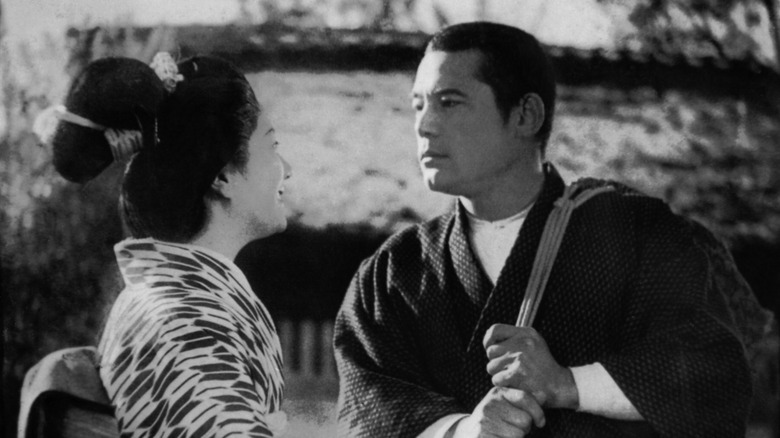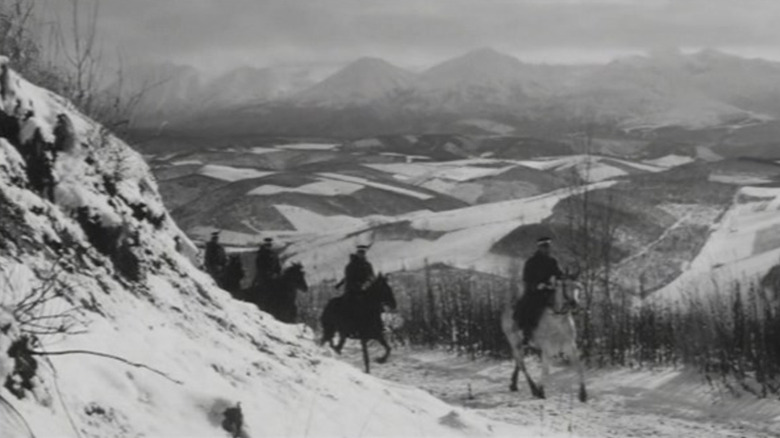Akira Kurosawa Could Have Had A Very Different Directorial Debut
Japanese filmmaker Akira Kurosawa has directed some of the most universally beloved movies of all time, but there was one movie that he wasn't allowed to make. When he first began writing scripts, the Japanese government was deeply militaristic and aligned with the WWII-era Axis powers. Kurosawa struggled with censors and production companies to get his first few projects funded.
The first screenplay he wanted to direct was called "Advance Patrol (Three Hundred Miles Through Enemy Lines)." The story is set at the dawn of the 20th century, during the Russo-Japanese War. A military troop is assembled and assigned to gain intelligence on their enemy by invading their headquarters in China. The epic narrative follows their impossibly long pilgrimage through Manchuria to Longshou Mountain in Tieling.
Kurosawa first pitched the idea in 1942, but producers turned it down. Instead, Kurosawa made his directorial debut with "Sanshiro Sugata" the following year. "Sanshiro Sugata" is a martial arts film about an aspiring jujitsu artist that abandons his practice to train under a judo master. He eventually uses his newly acquired judo skills to face his old jiu-jitsu teacher and win the heart of his daughter.
"Sanshiro Sugata" is an incredibly impressive debut, but it begs the question — why was "Advance Patrol" turned down?
Advance Patrol missed its time
Kurosawa described Nobuyoshi Morita, the producer who turned him down for "Advance Patrol," as "the producer who nurtured me" in an interview with fellow filmmaker Nagisa Ōshima (via Khataakk). Before his passing in 1951, Morita apparently told the director, "I made the greatest mistake of my life when I didn't let you make 'Advance Patrol' ... but I couldn't let a first-time director tackle such a big project."
"Advance Patrol" was eventually made in 1957, with Kazuo Mori directing. However, Kurosawa felt that "the movie could've only been made then," when it was originally pitched. "It was written at that moment in time when Japan, Germany, and Italy were allies," he explained. "I feel its time has passed ... it missed its time to get made."
Political circumstances changed drastically in Japan between 1942 and 1957. In 1942, Japan and the Soviet Union were on the brink of war. The USSR would declare war on Japan just three years later, once again battling for territory in Manchuria, just like in the Russo-Japanese War. By 1957, the combat was long over. Neither had attacked the other in over a decade, and their state of war was officially ended by the Soviet-Japanese Joint Declaration of 1956. By the time Japanese audiences saw "Advance Patrol," the story may have felt stale — and Kurosawa would definitely agree.
Kurosawa went on to make dozens of beloved films, from "Seven Samurai" to "Yojimbo," but it's a shame that some of his earliest work was compromised. If he had only been trusted to direct "Advance Patrol" himself in 1942, he could've done true justice to his story and added yet another masterpiece to his collection. Instead, it was made after its time by a sub-par director, and then lost to obscurity.

